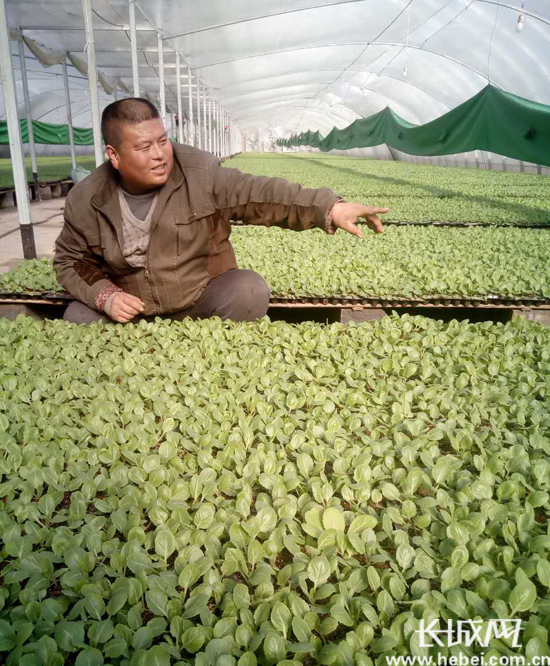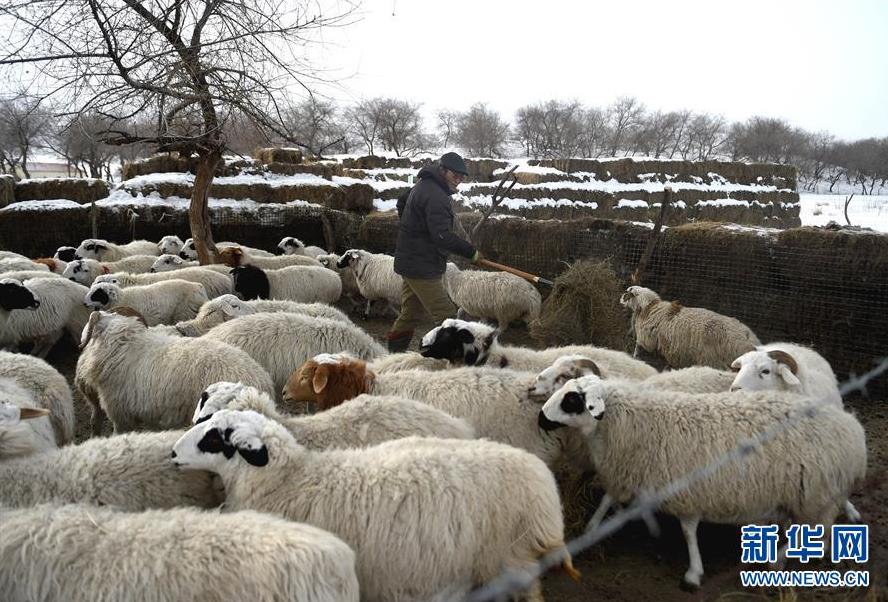Zhangxian County, Gansu Province: thinking of his hometown, seeking development, resigning and going back to his hometown to run a pig farm
In the cold winter, walking into Jinzhong Village, Jinzhong Town, Zhangxian County, a sign of Liqing farming farmers' professional cooperative stands out on the side of the road. Following the cue board, he came to the farm and exchanged pleasantries with Zhao Liqing, a young and capable college student, and his chatterbox opened.
In 2010, Zhao Liqing was admitted to the animal science major of Huazhong Agricultural University and became a "golden Phoenix" flying out of the mountains. He majored in animal disease and modern aquaculture technology. He is diligent and studious. He has been an excellent student for four years. From September 2013 to June 2014, he studied in Huangling District of Cofco, where he served as deputy factory director. After graduating in July 2014, he was recruited as a district manager by Wuhan Zhengda Group, responsible for the work of large-scale farms. When he returned to his hometown on vacation and saw the villagers in the village, the days were tight, and he felt very uncomfortable, so he came up with the idea of taking the villagers to breed and become rich. As soon as he told his parents about his idea, he met with opposition. Undaunted, Zhao Liqing patiently told her family about the country's policies to promote college students' entrepreneurship and the significance of setting up their own farms. His determination and advanced consciousness finally won the understanding and support of his family. After careful consideration, he resigned from his position of manager with an annual salary of 120000 yuan in November 2015. together with his family, he raised funds everywhere, raising more than 400,000 yuan from relatives and friends successively as funds for starting a pig farm.
As the saying goes, starting a business is difficult at the beginning. In February 2016, just at the beginning of spring, the construction of pig farms began. With the meticulous help of the town party committee, government and county animal husbandry technicians, the construction of pig farms began in the cold wind. In May, two fattening houses, delivery rooms and processing farms were completed, and 10 binary sows, 30 local breeds and 100 commercial pigs were introduced, including one breeding boar, with an investment of 470000 yuan, which was built to a high standard in accordance with the requirements of pig improvement and demonstration. Clean and tidy without pollution. He processes feed, disinfects piggery, and injects against epidemic. Use the technology you have learned to feed pigs, grow fast, have strong disease resistance, and grow shiny, and people in the surrounding villages visit and study. The county animal husbandry department sent more than 30 pig farmers throughout the county to Liqing farm to pass on his skills and guide pig farming.
Where there's a will, there's a way. Only more than 4 months, the pig farm has produced 120 commercial pigs with an income of more than 200,000 yuan. In addition, there are 160 fattening pigs worth 350000 yuan, 20 sows worth more than 70, 000 yuan, and 40 piglets worth 25000 yuan, which embarked on the road of scientific pig raising to become rich, led more than 30 local farmers to raise pigs, and set up a professional cooperative for Liqing breeding farmers. in the form of "base + cooperative + farmers", it provides free breeding technology for farmers, artificial insemination of sows and leading 20 poor households to raise sows. Increase household income and help get rid of poverty.
Zhao Liqing made plans for future development, building another 600 square meters of matching houses in 2017 to achieve unified breeding of sows for local farmers, unified prevention and control of epidemic diseases, improvement of local native pigs, keeping more than 200 sows, driving more than 100 poor households to raise pigs, and realizing the rolling development of cooperatives and farmers to become rich together.
- Prev

Nanhakou Village, Julu, Hebei Province: farmers are busy raising seedlings in a greenhouse
Nanhakou Village, Julu, Hebei Province: farmers are busy raising seedlings in a greenhouse
- Next

Raise "mobile sheep" to get rid of poverty and become rich and jubilant
Raise "mobile sheep" to get rid of poverty and become rich and jubilant
Related
- A course of planting techniques and methods on how to grow carrots
- How to plant the latest tulips?
- Is it better to pick tea in the morning or in the afternoon? When is the best time for tea to be picked? what is the third or fifth tea?
- Launch Yuanxiao Happy combination Haocha + Tea Yuan healthy Taste
- Penghu Tourism "Fireworks 20 Parade with You"
- 2022 West Lake Happiness holds "Digital Revitalization Voucher" and draws iphone13 and laptop.
- Banqiao Fuzhou social houses are designed to change start-up combined with police elimination to create a safe and livable environment
- The convenient measure of "mechanical weeding" in Xinbei has been abused and the Agriculture Bureau has imposed heavy penalties on the illegal land consolidation.
- Changgeng University Joins Hands with Four Memory Factories to Rescue Memory Talent Shortage
- The list of Taiwan's top 100 MVP managers is listed by the Director-General of the Farmers' Association of Sanxia District.

